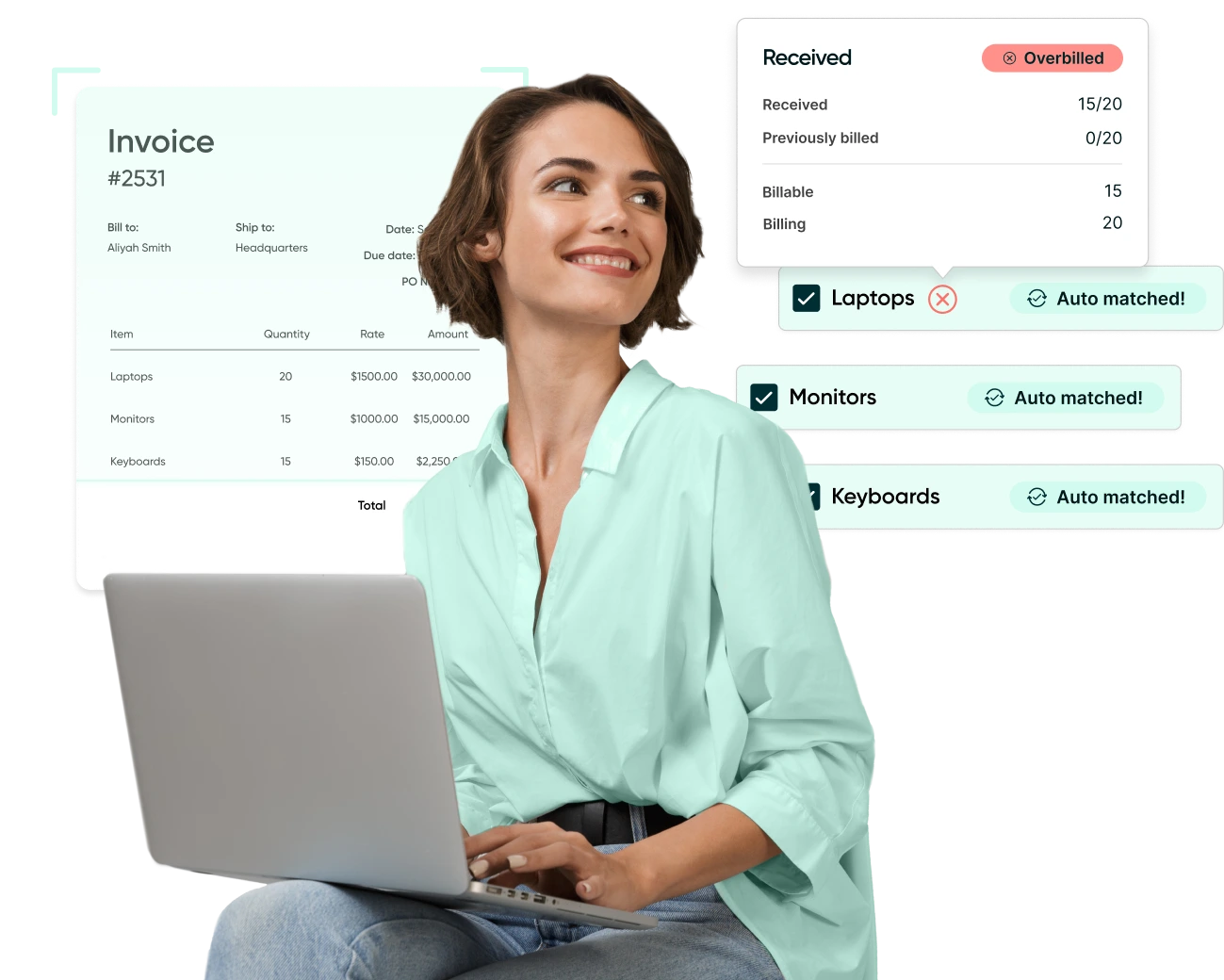What the New Generation of CPAs Actually Want – Anna Sun of Procurify
This interview is taken from an episode of the Spend Culture Stories podcast. In this episode, Anna Sun, the newest member of our very own Procurify finance team, shares why many CPAs are flocking to startups, and why she refuses to work for a company that does not use technology to level up their finance team.
About the Podcast:
Your company culture might attract talent, but your Spend Culture will make or break your company. The Spend Culture Stories podcast helps finance leaders learn the tactics, strategies, and processes to build a proactive Spend Culture. In this podcast, we have human conversations about the messy and sometimes hilarious stories that happen when people, organizations, and money meet. Learn how to pick the right tools, implement the most efficient processes, and how to develop the right people to transform the Spend Culture of your organization for the better.
What The New Generation of CPAs Actually Care About
Anna Sun, CPA is a former auditor at PriceWaterHouse Coopers (PwC) and now is the newest member of our finance team at Procurify. In this episode, she shares why many newly minted CPAs are flocking to startups, and why she refuses to work for a company that does not level up its finance team with technology.

Speakers: Anna Sun, CPA, Senior Accountant, Procurify
Listen to the Episode Here:
Notable Quotes:
Q: Why did you end up leaving the big four? Was it to get a different team environment or something else?
My interest is always technology. Technology is the future. So, I wanted to go to a startup where I can be involved in the operations, and not just the accounting or money side of it. I wanted to be truly involved with the business and use my accounting background to help the business to grow.
So, eventually, I picked Procurify because I do believe in our product. I think it’s very, very powerful for the new accounting world.
Q: What do you think of using excel to track and manage spend? Most accountants swear and die by excel as their main tool of the trade, and do not think they need anything else. Is this what you saw as a former auditor?
When I went into audit or reviews, we test the controls where we understand the whole control process. And we realized that a lot of clients outside still track their spending using Excel, which is fine in the earlier growth phases.
However, when a requirement comes up for a review procedure or audit procedure, using spreadsheets as your main tracking tool becomes problematic, because when you are using Excel, it’s very prone to human errors.
As a controller, you cannot rely on the information or the control just using spreadsheets. So, they probably have to spend more time on testing the procedures or adding extra steps, which eventually will waste a lot of money overall when it comes to the time and effort being spent. Also, during an audit, you have to keep the receipts for a lot of expenses for reporting purposes. But when you only track spend on excel, you have the line items, but not the receipts attached or an explanation on why the amount was spent.
Additionally, Excel doesn’t provide a three-way matching system (that something like Procurify does), where it matches the purchase order, the packing slip and the invoice, which I think is very neat. You need that kind of information in an audit.
Q: So, you mentioned that missing receipts are a huge piece of documentation needed for an audit. What are some other red flags/bad practices that you’ve seen when it comes to the expenses in audits?
Poor Records and Data for Reconciliations
Sometimes, during the reconciliation process, the number doesn’t reconcile and then the controller cannot find out what the problems are, because there they don’t have records for anything.
And now we are just like, ‘Oh, what should we do now?’, because there is a big gap in between, and we would probably have to adjust the sample size, which then overall you probably create a lot of problems. And because we are doing so much digging and spending so much time finding the lost records and information, it costs a lot more money and billable hours.
Manual Expense and Budget Tracking Procedures
Another big red flag is how they budget and report on actual expenses. I worked at a startup company when I did my audit and found that the controller used this huge spreadsheet to track the actual expenses versus budget for every single month.
It was a lot of work to open this huge spreadsheet for every single account. A lot of human error can go into it, because I have to import the number and then the controller has to check the number. Manual labour and double checking wasted a lot of time.
But when it comes to using a tool like Procurify, it makes the process easier. It has this real-time budget function where you can put in your budget, and you can see exactly how much you have the budget for this specific account! This is such a neat function which makes it very easy to track the spending.
Q: Given that in your previous role as an auditor and you’ve seen so many ‘old-fashioned’ controllers along the way, how do you see them changing their processes or influencing them to look into other technological solutions?
A lot of my friends are actually senior accountants who moved on and became the controller of the company. A lot of them told me that they don’t want to rely on Excel anymore because it really doesn’t work. In fact, every single day, they’re very open to trying new different software.
For example, even PwC has this marketing strategy where if they do the bookkeeping for firms, then they give us special packages when you sign on as a technological partner. A lot of clients will also ask the auditors or reviewer’s opinions on what kind of new software out there so that they can use to improve their processes in general.
Q: What are some other tips and tricks you’d recommend to make month-end reconciliations or audits less painful?
The biggest thing that is so straightforward but important is to keep your receipts, save your receipts. That’s definitely like something the auditors are looking for. We do look for receipts, even though it’s two dollars – we still check it.
Another thing is that when you’re spending something, it’s best to describe what the expenses are for. That’s because sometimes when we’re recording the expenses, we’re not sure why it was spent. When we see the expense report, it just comes with a receipt saying two dollars and fifty cents. It could be your own meal, or it could be a business meal, or it could be a part of a marketing expense. The best practice is to write down the reason or explanation, like providing a general note on the expense. Having a record to explain why spending has occurred is so beneficial to make audits easier.

Webinar: Automate Your AP Processes with Procurify
Learn how AP automation enhances the efficiency, accuracy, and financial visibility of your accounts payable workflows.
